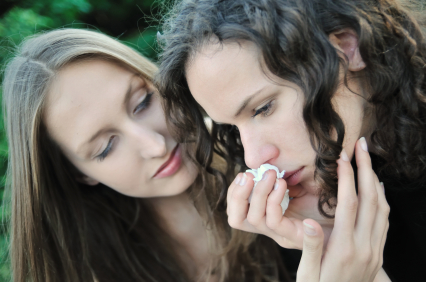Bear with me here. Rather than crossing the street to get to the other side, I’m going to take the long way around. Thus, what seems like a post on emotional intelligence will eventually become one. I just need to set up the scene, so to speak.
I was recently watching a presentation from a medical doctor who wanted to explore the concept of self-healing and the impact of the mind on the body. You can check it out here.
This doctor fully admitted that she was a skeptic; if it couldn’t be proven through the scientific method – which many of us in the medical and mental health field have to live by – it’s unlikely to be true. If you’re sick or have a disease, you go to the doctor and get a prescription, or undergo some surgical or medical procedure. However, the impact of the placebo effect cannot be denied. Give someone a sugar pill or fake surgery, tell them it will help cure whatever they have, and the person could make a full recovery. I’ve learned over the years that a drug or procedure only heals to the degree that the person believes it will.
There are two key elements however, that are necessary for self-healing: belief and trust on the part of the patient, and a supportive and caring healer – be it a medical doctor, homeopath, Reiki master, etc. This is the point I want to jump off on: The impact of the “healer’s” personality and behavior on the healing of an ailment in the body.
“It’s supposed to be a secret, but I’ll tell you anyway. We doctors do nothing. We only help and encourage the doctor within.”
Albert Schweitzer, M.D.
I think nurses are amazing people. Amazing. They have to have a strong yet gentle personality. They need to be able to put themselves in the open-butt gown of a patient and see the world through their perspective. At the same time, they also need to be able to distance themselves to some degree, so that they can be supportive and strong for others. If the nurse is strong, the patient will find comfort. I’m talking from personal experience here. I’ve been in medical situations where the nurses’ comforting strength was the only thing that kept me from crying hysterically or running out of the hospital in my open-butt gown. The key here is emotional intelligence – nurses need to know how to handle emotional people and situations in a tactful manner. They are a crucial aspect of the healing process.
So how different would human interaction be if kids underwent emotional intelligence training in school? What would happen if we made it a part of their curriculum? Well according to research we conducted, EI is a multi-faceted competency that has a major impact on how successful a person is at creating and maintaining relationships.
Hollywood movies would have us believe that in order to be popular, you need to have charisma, devious powers of manipulation, and the emotional depth of a teaspoon. Granted, charisma can draw people to you, but it’s emotional intelligence that keeps them there. Analyzing a sample of 34, 870 people who took our Emotional Intelligence Test, our data reveal that those with strong emotional intelligence are more popular in their social group, more satisfied with their relationships in general (family, friends, romantic), and tend to experience less conflict and arguments.
Those who are satisfied with their relationships significantly outscored their less satisfied counterparts on key EI traits like:
- Comfort dealing with one’s own and other people’s emotions (61 vs. 43)
- Social insight (85 vs. 75)
- Self-control (68 vs. 44)
- Self-esteem (75 vs. 47)
- Values integrity (knowing what one’s values are, and living by them) (74 vs. 65)
Those who experience very little conflict significantly outscored their counterparts on traits like:
- Problem-solving (77 vs. 65)
- Positive mindset (69 vs. 55)
- Impulse control (59 vs. 45)
- Self-control (68 vs. 49)
- Resilience/Hardiness (72 vs. 57)
- Coping skills (69 vs. 44)
- Conflict resolution (71 vs. 63)
- Flexibility (59 vs. 43)
- Rumination is the only exception – those who argue more and also more likely to ruminate (45 vs. 64)
Those who are popular significantly outscored their less popular counterparts on traits like:
- Emotional self-awareness (ability to recognize and identify one’s own emotions) (59 vs. 48)
- Awareness of one’s strengths and limitations (73 vs. 63)
- Positive mindset (69 vs. 55)
- Self-control (66 vs. 54)
- Self-esteem (75 vs. 56)
When incorporating relationships status in their analysis, Queendom’s data also reveal that, compared to married people, single people:
- Tend to be uncomfortable with emotions – both their own and other people’s
- Have higher tendency to ruminate
- Have more difficulty with problem-solving
- Tend to have a less positive mindset
- Are less effective at resolving conflict
- Have lower self-esteem
- Are less content with their life in general
- May know what their values, but don’t stick to them
- Are actually less independent
Here’s the thing: The inclusion of emotional intelligence training in managerial development is already well in progress – but it may be time to make it part of school curriculum. Children need more than socialization opportunities; they need to be able to learn how to deal with their emotions and accept them as a part of who they are. These are the people who will grow up to be our nurses, police officers, doctors, judges, and mental health professionals. And it’s time that boys were taught that there is nothing wrong with having and expressing FEELINGS. In our nearly 20-year study of emotional intelligence, women continue to outscore men on EI traits like empathy, social insight, conflict resolution, and comfort with emotion.
This is a trend that I hope to see change in the next 20 years.
Insightfully yours,
Queen D


